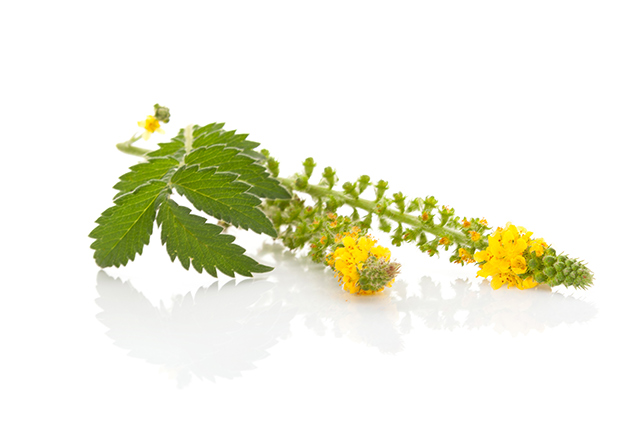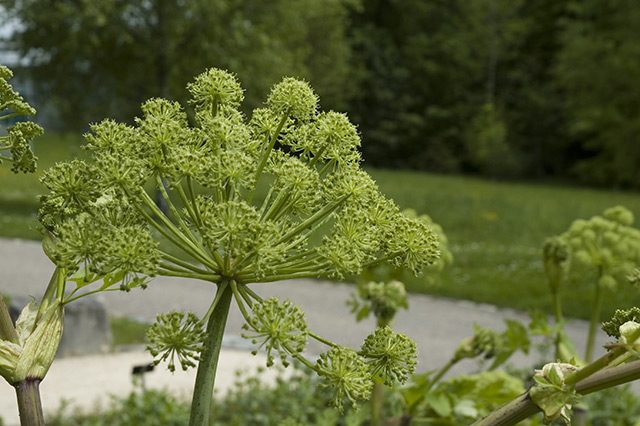Agrimony: An ancient healing herb with modern uses
05/23/2025 / By Ava Grace

- Agrimony (Agrimonia eupatoria) had been used by ancient Greek and Roman healers to treat wounds, digestive issues and liver disorders. It was a staple in medieval European monastic gardens and is known by other names such as “church steeples” and “sticklewort.”
- Rich in tannins, flavonoids, phenolic acids and coumarins, agrimony boasts anti-inflammatory, antioxidant and antimicrobial properties. These compounds contribute to agrimony’s effectiveness in treating skin conditions, reducing inflammation and combating oxidative stress.
- Agrimony is known to help with diarrhea and IBS, aid liver detoxification, treat eczema and wounds, alleviate respiratory ailments and reduce inflammation and oxidative stress.
- Beyond its medicinal applications, agrimony’s mildly bitter, earthy flavor makes it suitable for herbal teas, infused honey and nutrient-rich broths, offering both flavor and health benefits.
- Steeped in folklore, agrimony was historically believed to ward off evil spirits and protect livestock. Today, it remains a versatile herb used in natural wellness practices, though consultation with a healthcare professional is recommended before use.
Agrimony (Agrimonia eupatoria), a plant steeped in history and revered for its medicinal properties, is a hidden gem in the world of herbal medicine. Known by various names such as common agrimony, church steeples or sticklewort, this herb has been used for centuries to treat a wide range of ailments.
With its dark green, serrated leaves and soft, sticky hairs that cling to passersby, agrimony is as intriguing in its appearance as it is in its potential to heal.
Brief history of agrimony
Agrimony has a rich history that can be traced back to ancient times. Native to Europe, agrimony has been used since the Middle Ages for its medicinal properties. The Greek physician Dioscorides and the Roman naturalist Pliny the Elder both documented its use for treating wounds, digestive issues and liver disorders.
In medieval England, agrimony was a staple in monastic gardens and was often referred to as “church steeples” due to its tall, spire-like flower spikes. The plant’s sticky seed pods, which cling to animals and clothing, earned it the name “sticklewort,” derived from the Old English word sticel, meaning “to prick” or “stick.” (Related: Agrimony protects the liver, fights inflammation, lowers blood sugar and can inhibit tumors.)
Today, agrimony grows wild in temperate regions across Europe, Asia and North America. It thrives in meadows, woodlands and along roadsides, often overlooked by those unaware of its healing potential.
Agrimony is easily recognizable by its tall, slender spikes of yellow flowers and dark green, serrated leaves. Its soft, sticky hairs give it a velvety texture, and its seeds are notorious for clinging to clothing and fur. The taste of agrimony is mildly bitter and earthy, making it a versatile addition to medicinal and culinary preparations.
Agrimony has long been associated with folklore and superstition. In medieval Europe, it was believed to ward off evil spirits and protect against witchcraft. Farmers would hang agrimony in their barns to protect livestock from disease. Its sticky seed pods were thought to symbolize its ability to “stick” to ailments and draw them out of the body.
Phytonutrients and health benefits
Agrimony is a powerhouse of phytonutrients, including tannins, flavonoids, phenolic acids and coumarins. These compounds are responsible for agrimony’s anti-inflammatory, antioxidant and antimicrobial properties. Tannins, for instance, are known for their astringent qualities, making agrimony effective in treating skin conditions and wounds. Flavonoids like quercetin and luteolin provide antioxidant benefits, helping to combat oxidative stress and inflammation.
Agrimony is traditionally used to address a variety of health concerns. Here are some of its most notable benefits:
- Digestive remedy – Agrimony is renowned for its ability to soothe digestive issues. It has been used to treat diarrhea, indigestion and irritable bowel syndrome (IBS). The tannins in agrimony help reduce inflammation in the gut, while its astringent properties can tighten and tone the digestive tract.
- Liver support – Agrimony has been used as a liver tonic, aiding in detoxification and improving liver function. Its antioxidant properties help protect liver cells from damage caused by toxins.
- Skin healing – Agrimony’s astringent and antimicrobial properties make it an excellent remedy for skin conditions such as eczema, acne and minor wounds. It can be applied topically as a poultice or infused in oils and creams.
- Respiratory remedy – Agrimony has been used to alleviate symptoms of respiratory conditions like cough, sore throat and bronchitis. Its anti-inflammatory properties help reduce irritation in the respiratory tract.
- Anti-inflammatory and antioxidant effects – The flavonoids and phenolic acids in agrimony help reduce inflammation and oxidative stress, making it an excellent natural medicine for arthritis and chronic inflammation.
Culinary uses
While agrimony is primarily known for its medicinal uses, it can also be incorporated into culinary creations. Its slightly bitter, earthy flavor pairs well with herbal teas, soups and stews. Here are a few recipe ideas to try:
- Agrimony herbal tea – Steep dried agrimony leaves in hot water for a soothing, digestive-friendly tea. Add honey or lemon for extra flavor.
- Agrimony-infused honey – Combine dried agrimony flowers with honey and let it infuse for a few weeks. Use this honey to sweeten teas or drizzle over yogurt.
- Healing agrimony broth – Add agrimony leaves to vegetable or bone broth for a nutrient-rich, anti-inflammatory soup.
Agrimony is a testament to the enduring power of traditional herbal medicine. From its ancient roots in European healing practices to its modern applications in supporting health and skin care, this humble herb continues to prove its worth. Whether enjoyed as a tea, infused in honey or used to make a healing broth, agrimony offers a natural way to support overall wellness.
This story is not medical advice and is not intended to treat or cure any disease. Always consult with a qualified naturopathic physician for personalized advice about your specific health situation or concern.
For more fascinating insights into superfoods, healing herbs and their natural wonders, visit NaturalNews.com. It’s a treasure trove of articles that will deepen your understanding of the healing power of food.
If you’re into cutting-edge technology with a health twist, try Brighteon.ai. Created by Mike Adams, the Health Ranger, this AI model is a free download that you can run on your own device. It’s all about sharing knowledge freely and bypassing the filters of censorship.
And if you’re looking for a place to openly discuss everything from nutrition to natural remedies without any holds barred, check out Brighteon.com and the free speech social media platforms, Brighteon.IO and Brighteon.social, where the conversation is always lively and uncensored.
Watch this video about the many medicinal benefits of agrimony.
This video is from the Holistic Herbalist channel on Brighteon.com.
More related stories:
Agrimony protects the liver, fights inflammation, lowers blood sugar and can inhibit tumors.
Reduce the effects of a high-fat diet with agrimony.
Agrimony can help increase your HDL levels.
Balance your blood sugar without toxic drugs.
Sources include:
Submit a correction >>
Tagged Under:
Agrimony, alternative medicine, health science, herbal medicine, Herbs, natural cures, natural healing, natural health, natural medicine, Naturopathy, organics, phytonutrients, plant medicine, remedies
This article may contain statements that reflect the opinion of the author





















